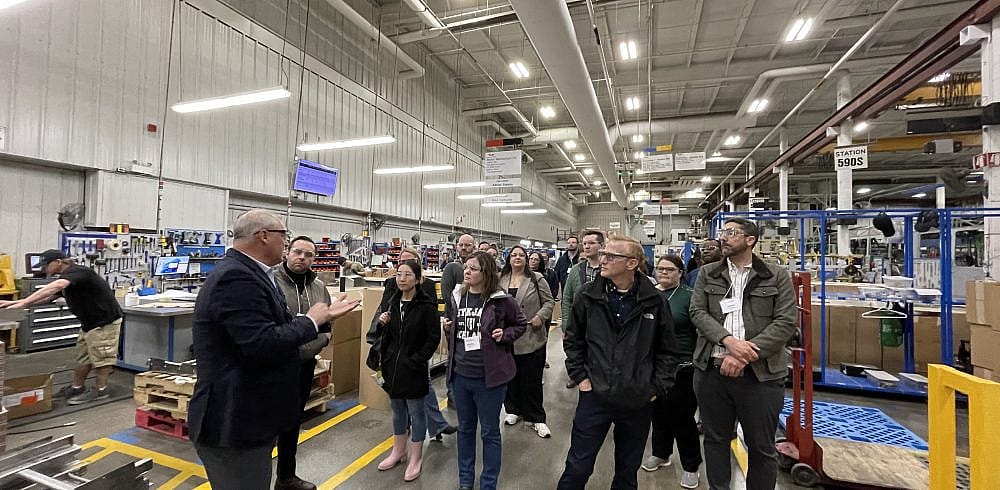3-minute read
Prairies Economic Development Canada (PrairiesCan) is leading engagement efforts for The Building a Green Prairie Economy Act. This legislation, championed by the Honourable Jim Carr, late Member of Parliament for Winnipeg South Centre, calls for developing a framework that promotes clean economic growth and stronger collaboration between federal and Prairie partners. This framework must reflect the voices of provincial, Indigenous, and municipal governments, industry, labour representatives, and Prairie Canadians.
We invite The Winnipeg Chamber members to share their ideas on green economic development opportunities for the Prairies, what is needed to advance them, and how to strengthen collaboration to seize new opportunities for the Prairies to grow sustainably in a competitive global economy. The input received will help build the framework, which must be tabled in Parliament by December 2023.
PrairiesCan has launched an engagement site with detailed information about the Act, a discussion paper and questions, and options for providing input by June 30, 2023. If you or your organization would like to arrange a conversation with PrairiesCan on this initiative, please get in touch with Chris Minaker, Director of Policy and External Relations for the Manitoba Region, at [email protected].
Below is an overview of the legislation for additional context. Please also feel free to share this engagement opportunity within your networks.
OVERVIEW OF THE ACT
- Objective: Develop a framework to enhance local cooperation and engagement in the implementation of federal programs across various sectors to build a green economy in the Prairies provinces.
- By early December 2023, the Minister responsible for economic development in the Prairies is required to table a report setting out this framework in Parliament.
- In developing the framework, the Minister responsible for economic development in the Prairies (Minister Vandal) is required to collaborate with the federal Ministers responsible for: (i)Environment (Minister Guilbeault); (ii) Transport (Minister Alghabra); (iii) Industry(Minister Champagne); (iv) Agriculture and Agri-food (Minister Bibeau); (v) Finance(Minister Freeland); and, (vi) Natural Resources (Minister Wilkinson).
- Externally, the Minister intends to consult with: (i) provincial government representatives; (ii)municipalities; (iii) Indigenous governing bodies; (iv) the private sector; and (v) representatives of employers and employees in the private sector.
- As per the Act, the framework may include measures that promote economic sustainability, growth, and employment in the Prairie provinces by:
- Addressing limited transportation options in small cities and communities and advancing innovative solutions for public transportation in those cities and communities;
- Fostering job creation and skills transfer in Prairie regions that rely on traditional energy industries to enable them to build a net-zero emissions green economy and mitigate their impact on climate change;
- Prioritizing projects that generate natural infrastructure and a clean environment and/or that make use of all sources of energy, including nuclear energy;
- Supporting the continued development of clean energy across economic sectors;
- Establishing programs and projects that stimulate green economic development in a way that takes into account local circumstances and the participation of local businesses, governments, and civil society organizations; and,
- Preparing infrastructure projects that facilitate climate change adaptation and/or mitigation.
- Other priorities/opportunities may be identified through stakeholder engagement.
- Within two years of tabling the framework in Parliament, and every five years after that, the Minister responsible for economic development in the Prairies is required to table a report in both Houses of Parliament on the framework’s progress and effectiveness and setting out any conclusions and recommendations.




